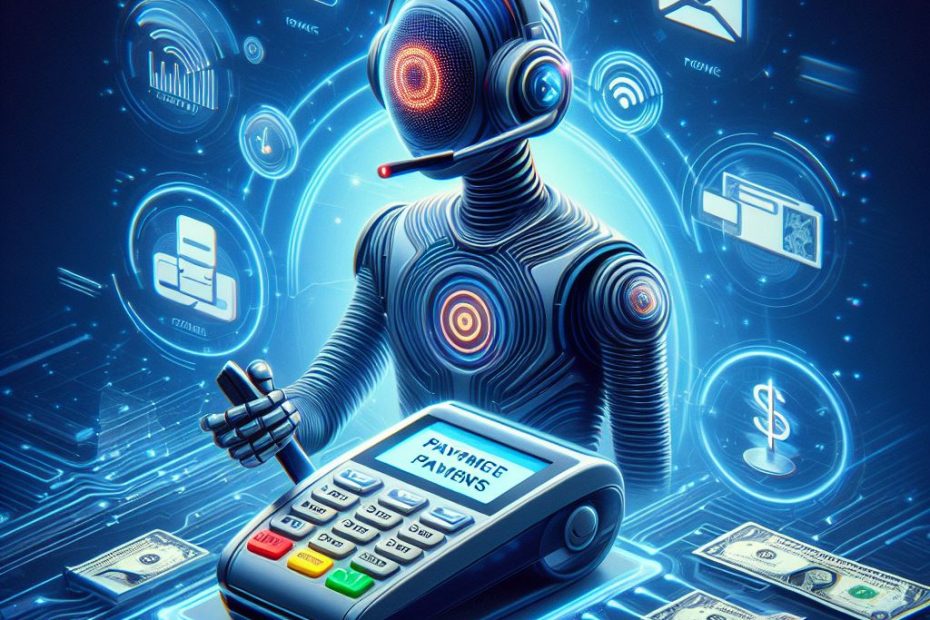Introduction
Interactive voice response (IVR) payments utilize phone systems allowing customers to pay bills or make financial transactions through automated menus using keypad selections. IVR payments provide convenient self-service options alongside agent connections for personal assistance when needed.
With built-in payment card industry (PCI) compliant security and automation efficiencies, businesses increasingly adopt IVR payments to facilitate commerce and cash flow while lowering operating costs. Customers also benefit from flexible payment choices and instant processing.
How IVR Payments Work
IVR payments run through sophisticated phone tree software integrating with merchant services backends and payment gateways. Callers first authenticate through account PINs or verification questions for security.
Self-service IVR payments then prompt customers to input payment method details like card numbers using phone keypads or voice commands. Convenient features like saved payment profiles further simplify repeat transactions.
However, customers can also connect to live agents directly from IVR systems whenever needing personalized help or clarification. Hybrid solutions allow self-service convenience with an added human touch when preferred.
IVR platforms process payments using integrated gateways like Adyen, Stripe, or Paya while storing card data under high-level encryptions adhering to PCI compliance standards. Healthcare IVRs also conform to HIPAA-compliant security safeguards.

Benefits of IVR Payments
Customer Convenience
Firstly, IVR payments allow customers to pay bills 24/7/365 without websites or apps through any phone line. After-hour availability particularly suits urgent transactions like insurance co-pays. Elderly clients uncomfortable with digital payments also benefit from straightforward IVR solutions through familiar landlines.
** prompter Payments**
Moreover, IVR payment reminders and flexibility significantly reduce late invoices by settling balances sooner. Studies show IVR solutions alone decreased late payments by over 30% in multiple sectors like medical, insurance and utilities.
Fewer Declines
Upfront card validation also minimizes declined charges by identifying issues preceding final submission compared to asynchronous online payments. IVRs also use tokenization preserving cards on file. These optimized authorization rates reduce revenue losses from false declines.
Operational Efficiency
Additionally, autonomous IVR payments let customers self-serve without agent transfers, saving labor costs. Staff instead focus on high-touch needs still requiring personal interventions through omnichannel CRM integrations. Overall, IVRs generate considerable operational efficiencies.

Top IVR Payment Providers
Agile Payments A top-rated IVR payment processor, Agile Payments equips clients with PCI-validated payment IVRs including automated speech recognition (ASR), payments by text, and biometric authentication. Real-time reporting dashboards help administrators monitor activity. Agile also enables easy CRM and ERP account integrations along with customization flexibility to match unique workflows.
Other Providers Companies like Pinpoint Payments, Capio, and InstaPay also garner recommendations as reliable IVR payment processors with 24/7 support. Careful vetting ensures reputable providers adhering to defense-grade security protocols for safeguarding sensitive financial data.
Who Should Use IVR Payments?
Billers and Organizations Virtually all businesses billing recurring payments or one-time fees should consider integrating IVR solutions allowing consumer self-service transaction convenience while decreasing administrative payment processing burdens internally.
Customers Without Internet
Additionally, IVR equips organizations to serve clientele still without internet availability through phone access alone. By retaining IVR payments, companies prevent service denials improving inclusion for technology-challenged demographics.

FAQs
What are IVR payments? Interactive voice response payments use automated phone tree systems letting callers navigate audio prompts using keypad selections to securely check account balances and transact payments.
What IVR payment options exist? Basic IVR payments utilize touchtone bill pay while advanced systems feature voice-activated commands enabling hands-free transactions through speech recognition AI interfaces.
Conclusion
Allowing secure self-service payments without websites or smartphone apps, IVR solutions retain crucial accessibility for bills payment, particularly populations less tech-savvy. Integrated PCI-validated security mechanisms also safely process transactions matching online levels while increasing customer conveniences. With turnkey solutions from vetted IVR providers, businesses significantly bolster cash flow and lower operational costs through automated pay-by-phone capabilities benefiting both organizations and clientele through omnichannel payment flexibility.
